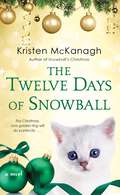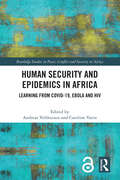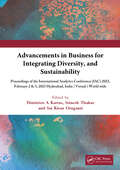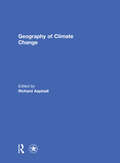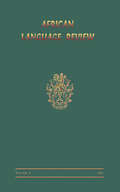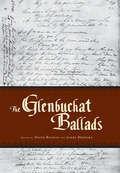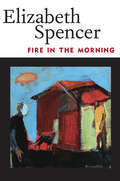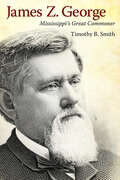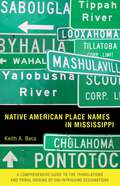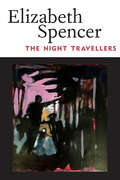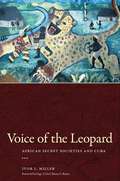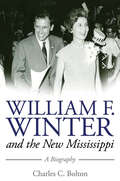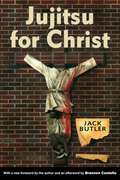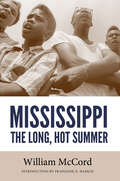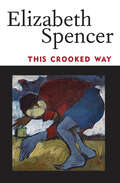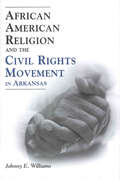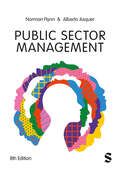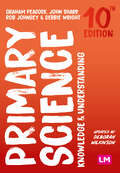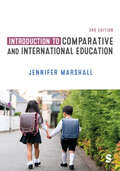- Table View
- List View
The Twelve Days of Snowball (Snowball #2)
by Kristen McKanaghSnowball, that lovable bundle of feline fluff readers first met as a kitten in Snowball&’s Christmas, is all grown up. And now that she has her forever home at a cozy B&B, she&’s determined to orchestrate a forever love match, just in time for the holidays . . . Snowball takes her job as the &“official kitty&” at the Victorian B&B Inn, Weber Haus, very seriously. Greeting guests and keeping tabs on them is a full-time feline job, after all. However, being nice to Daniel Aarons is not on her to-do list. The handsome construction manager almost messed up her forever family, and she isn&’t about to forgive him anytime soon . . . But then someone new arrives at Weber Haus. Her name is Sophie Heidt—and she&’s the B&B&’s new manager. When Snowball goes missing on Sophie&’s first day, Daniel, in charge of the new hotel wing, comes to her rescue by getting the cat to do what she does best: attack him. It doesn&’t take long for Snowball&’s animal instincts to reveal that Daniel and Sophie are meant to be together. Unfortunately, Daniel keeps making a mess of things. It&’s going to take some special insight and holiday cheer to bring them together. But if anyone can do it, Snowball can—even if she has to tolerate turtle doves, French hens, calling birds, and other fur-raising human traditions . . .
Human Security and Epidemics in Africa: Learning from COVID-19, Ebola and HIV (Routledge Studies in Peace, Conflict and Security in Africa)
by Velthuizen, Edited by Andreas Caroline VarinThis book examines the impact of epidemics in Africa, exploring some of the adaptation and crisis management strategies adopted to tackle COVID-19, Ebola, and HIV-AIDS. The authors reflect on lessons learned from solving complex problems and difficult decisions made by leaders on pandemic management to shape the security environment and, thus, the well-being of people living in Africa for years to come.Drawing on cases from across the continent, the book demonstrates that, significantly, during the COVID-19 pandemic, African countries and communities frequently displayed regional solidarity, creativity in decision-making, decisiveness in dealing with corruption and opportunism, and resilience and discipline in implementation. Adopting a human security framework, the authors share their lived experiences and explore the impact of epidemics on public policy decision-making, foreign policy implementation, global relations, collaboration in the community dimension, and, ultimately, the future of socio-economic development in Africa.This book will be a welcome addition for practitioners and researchers across the fields of security studies, health management, and African studies, making an essential contribution to the security discourse in a post-COVID world.
Advancements in Business for Integrating Diversity, and Sustainability: International Analytics Conference 2023 | IAC 2023 February 2& 3, 2023 | Virtual Conference
by Dimitrios A. Karras Srinesh Thakur Sai Kiran OrugantiThis book is the collection of selected articles that appeared at the First International Analytics Conference 2023 held in Hyderabad in virtual mode on February 2nd the 3rd 2023. In the fast-paced, ever-changing world of business, the pursuit of diversity and sustainability has emerged as a dynamic catalyst for progress. This illuminating volume takes you on a journey through the evolving realm of business, where innovative approaches are redefining corporate strategies and values.
Geography of Climate Change
by Richard AspinallClimate change is one of the inescapable themes of current times. Climate change confronts society in issues as diverse as domestic and international political debate and negotiation, discussion in the media and public opinion, land management choices and decisions, and concerns about environmental, social and economic priorities now and for the future. Climate change also spans spatial, temporal and organisational scales, and has strong links with nature-society relationships, environmental dynamics, and vulnerability. Understanding the full range of possible consequences of climate change is essential for informed decision making and debate. This book provides a collection of chapters that span environmental, social and economic aspects of climate change. Together the chapters provide a diverse and contrasting series that highlights the need to analyze, review and debate climate change and its possible impacts and consequences from multiple perspectives. The book also is intended to promote discussion and debate of a more integrated, inclusive and open approach to climate change and demonstrates the value of geography in addressing climate change issues.This book was originally published as a special issue of Annals of the Association of American Geographers.
African Language Review
by David DalbyFirst published in 1971. The Sierra Leone Language Review is the African Language Journal of Fourah Bay College, the University College of Sierra Leone. The Journal is devoted to the detailed study of languages in Sierra Leone and neighbouring areas of West Africa, and also to the more general study and discussion of African languages and language-problems
The Twickenham Edition of the Poems of Alexander Pope: Index (Volume 11)
by Maynard MackIndex to The Twickenham Edition of the Poems of Alexander Pope, which has remained the standard edition for more than a generation. This exhaustive index allows easy access to the individual poems and people and places of the period, making this an essential source for anyone studying eighteenth-century literature or eighteenth-century studies.
My Beautiful Disaster (the pathways collection #2)
by Michelle BuckmanHanging out with Heather and Tammy, the most popular girls in school, has changed Dixie's life. Every weekend is filled with shopping trips, pizza, and parties. But no escapade compares to the night the three of them sneak out to see a hot new band. When Dixie catches the eye of lead guitarist Vince Evans, she's in heaven. He's so suave, so good-looking and mysterious, that none of the boys at school begins to measure up to him. Dixie thinks it's love at first sight, and there's nothing she wants more than to be Vince's girl, no matter what it takes—until his nice-guy facade slips away and she realizes his act doesn't end on the stage. Michelle Buckman. is the author of Maggie Come Lately, the first release in THE PATHWAY COLLECTION. She lives with her husband and children near the Carolina coast. Michelle shares news and welcomes comments from readers through her website, www.michellebuckman.com.
Desi Divas: Political Activism in South Asian American Cultural Performances
by Christine L. GarloughDesi Divas: Political Activism in South Asian American Cultural Performances is the product of five years of field research with progressive activists associated with the School for Indian Languages and Cultures (SILC), South Asian Americans Leading Together (SAALT), the feminist dance collective Post Natyam, and the grassroots feminist political organization South Asian Sisters. Christine L. Garlough explores how traditional cultural forms may be critically appropriated by marginalized groups and used as rhetorical tools to promote deliberation and debate, spur understanding and connection, broaden political engagement, and advance particular social identities. Within this framework she examines how these performance activists advocate a political commitment to both justice and care, to both deliberative discussion and deeper understanding. To consider how this might happen in diasporic performance contexts, Garlough weaves together two lines of thinking. One grows from feminist theory and draws upon a core literature concerning the ethics of care. The other comes from rhetoric, philosophy, and political science literature on recognition and acknowledgment. This dual approach is used to reflect upon South Asian American women's performances that address pressing social problems related to gender inequality, immigration rights, ethnic stereotyping, hate crimes, and religious violence. Case study chapters address the relatively unknown history of South Asian American rhetorical performances from the early 1800s to the present. Avant-garde feminist performances by the Post Natyam dance collective appropriate women's folk practices and Hindu goddess figures make rhetorical claims about hate crimes against South Asian Americans after 9/11. In Yoni ki Bat (a South Asian American version of The Vagina Monologues) a progressive performer transforms aspects of the Mahabharata narrative to address issues of sexual violence, such as incest and rape. Throughout the volume, Garlough argues that these performers rely on calls for acknowledgment that intertwine calls for justice and care. That is, they embed their testimony in traditional cultural forms to invite interest, reflection, and connection.
The Glenbuchat Ballads
by David BuchanSometime in the early nineteenth century, most likely in the year 1818, the Reverend Robert Scott, minister of the parish of Glenbuchat in Aberdeenshire, Scotland, compiled a collection of traditional ballads that until now has not been published. Most of the ballad collections produced during the Scottish Romantic Revival were eventually anthologized in Francis James Child's seminal English and Scottish Popular Ballads (five volumes, 1882-96). Yet, the Glenbuchat manuscripts, containing sixty-eight ballads in four folio volumes, were not included in Child's volumes. The complete work only came to light in 1949 when it was donated to the Special Collections of the Aberdeen University Library by a descendent of the original compiler. Scott did not give the precise locations of where he collected his ballads or name the performers, but the texts are unique and appear to have been drawn from oral sources. As such, the ballads reveal a great deal about the nature of traditional music at the time they were collected. The Glenbuchat Ballads were originally prepared for publication by David Buchan, one of the leading ballad scholars of the twentieth century. Upon Buchan's death, his former student James Moreira took up and completed his work and wrote the detailed introductory essay and annotations in this volume.
Fire in the Morning (Banner Books)
by Elizabeth SpencerAdmirers of Elizabeth Spencer’s writing will welcome back into print her first novel, and her new readers will discover the sources of her notable talent in this book. Published in 1948 to extraordinary attention from such eminent writers as Robert Penn Warren, Eudora Welty, and Katherine Anne Porter, this father-and-son story revolves around an old southern theme of family grievances and vendettas. Fire in the Morning recounts the conflict between two families extending over two generations up to the 1930s. The arrival of an innocent stranger flares old arguments and ignites new passions. In Spencer's compelling tale of the half-forgotten violence, the well-deep understanding of father and son, Kinloch Armstrong, the young hero, confronts mysteries of the past. His wife, a newcomer to the area and its legacies, makes friends with a family of traditional rivals. After she is involved in a nighttime wreck and the death of a local man, the past gradually comes to light, and the two families once again become caught up in revelations, hatreds, and conflicts. Spencer faithfully renders the setting—a small, dusty Mississippi town—and the surrounding countryside as it was in the early twentieth century.
James Z. George: Mississippi’s Great Commoner
by Timothy B. Smith“When the Mississippi school boy is asked who is called the ‘Great Commoner’ of public life in his state," wrote Mississippi’s premier historian Dunbar Rowland in 1901, “he will unhesitatingly answer James Z. George.” While George’s prominence, along with his white supremacist views, have decreased through the decades since then, many modern historians still view him as a supremely important Mississippian, with one writing that George (1826–1897) was “Mississippi's most important Democratic leader in the late nineteenth century.” Certainly, the Mexican War veteran, prominent lawyer and planter, Civil War officer, Reconstruction leader, state Supreme Court chief justice, and Mississippi’s longest-serving United States senator to that time deserves a full biography. And George’s importance was greater than just on the state level as other southerners copied his tactics to secure white supremacy in their own states. That James Z. George has never had a full, academic biography is inexplicable. James Z. George: Mississippi’s Great Commoner seeks to rectify the lack of attention to George’s life. In doing so, this volume utilizes numerous sources, never or only slightly used, primarily a large collection of George’s letters held by his descendants and never used by historians. Such wonderful sources allow a glimpse not only into the life and times of James Z. George, but perhaps more importantly an exploration of the man himself, his traits, personality, and ideas. The result is a picture of an extremely commonplace individual on the surface, but an exceptionally complicated man underneath. James Z. George: Mississippi’s Great Commoner will bring this important Mississippi leader of the nineteenth century back into the minds of twenty-first-century Mississippians.
Native American Place Names in Mississippi
by Keith A. BacaBiloxi. Tunica. Pascagoula. Yazoo. Tishomingo. Yalobusha. Tallahatchie. Itta Bena. Yockanookany. Bogue Chitto. These and hundreds of other place names of Native American origin are scattered across the map of Mississippi. Described by writer Willie Morris as “the mysterious, lost euphonious litany,” such colorful names, which were given by the Choctaw, Chickasaw, and other tribes, contribute significantly to the state’s sense of place. Yet the general public is largely unaware of exact meanings and tribal roots. Native American Place Names in Mississippi is the first reference book devoted to a subject of interest to residents and visitors alike. From large rivers and towns to tiny creeks and rural communities, Keith A. Baca identifies the most probable meanings of many names with more than one recorded interpretation. He corrects misconceptions that have arisen over the years and translates numerous names for the first time. For the benefit of travelers, he provides the location of each named place. To bring attention to often inconspicuous and unmarked streams, he also indicates points where highways cross rivers and creeks with Native American appellations. Sidebars present Native American history, legends, and myths that surround these enigmatic and alluring designations.
The Night Travellers (Banner Books)
by Elizabeth SpencerElizabeth Spencer is “a master storyteller” (San Francisco Chronicle), her work called “dazzling” by Walker Percy. Whether she's writing short stories or novels, Spencer is acclaimed for holding her worlds up to light and turning them to see what they reflect. The Night Travellers, set in North Carolina and Montreal during the Vietnam War years, is her most revealing work yet. Mary Kerr Harbison is a promising teenaged dancer when she meets Jefferson Blaise, an intellectual radical-in-the-making. He becomes a part of her life and over the objections of Mary’s wealthy, abusive mother, her husband. But although Jeff’s heart is devoted to Mary, his life is devoted to protesting the Vietnam War—at first through the public rallies, later through guerilla tactics. As Jeff is drawn deeper and deeper into the movement, he and Mary are forced to go underground and eventually move to Canada. Jeff’s activities keep him on the move, and Mary, living in Montreal, struggles to raise her daughter and make a life for herself. An exploration of a dramatic period in our history, The Night Travellers is a powerful depiction of lives forever changed by political beliefs and fervidly held convictions.
Voice of the Leopard: African Secret Societies and Cuba (Caribbean Studies Series)
by Ivor MillerIn Voice of the Leopard: African Secret Societies and Cuba, Ivor L. Miller shows how African migrants and their political fraternities played a formative role in the history of Cuba. During the eighteenth and nineteenth centuries, no large kingdoms controlled Nigeria and Cameroon's multilingual Cross River basin. Instead, each settlement had its own lodge of the initiation society called Ékpè, or “leopard,” which was the highest indigenous authority. Ékpè lodges ruled local communities while also managing regional and long-distance trade. Cross River Africans, enslaved and forcibly brought to colonial Cuba, reorganized their Ékpè clubs covertly in Havana and Matanzas into a mutual-aid society called Abakuá, which became foundational to Cuba's urban life and music. Miller's extensive fieldwork in Cuba and West Africa documents ritual languages and practices that survived the Middle Passage and evolved into a unifying charter for transplanted slaves and their successors. To gain deeper understanding of the material, Miller underwent Ékpè initiation rites in Nigeria after ten years' collaboration with Abakuá initiates in Cuba and the United States. He argues that Cuban music, art, and even politics rely on complexities of these African-inspired codes of conduct and leadership. Voice of the Leopard is an unprecedented tracing of an African title-society to its Caribbean incarnation, which has deeply influenced Cuba's creative energy and popular consciousness.
William F. Winter and the New Mississippi: A Biography (Willie Morris Books in Memoir and Biography)
by Charles C. BoltonFor more than six decades, William F. Winter (1923–2020) was one of the most recognizable public figures in Mississippi. His political career spanned the 1940s through the early 1980s, from his initial foray into Mississippi politics as James Eastland's driver during his 1942 campaign for the United States Senate, as state legislator, as state tax collector, as state treasurer, and as lieutenant governor. Winter served as governor of the state of Mississippi from 1980 to 1984. A voice of reason and compromise during the tumultuous civil rights battles, Winter represented the earliest embodiment of the white moderate politicians who emerged throughout the “New South.” His leadership played a pivotal role in ushering in the New Mississippi—a society that moved beyond the racial caste system that had defined life in the state for almost a century after emancipation. In many ways, Winter's story over nine decades was also the story of the evolution of Mississippi in the second half of the twentieth century. Winter remained active in public life after retiring from politics following an unsuccessful U.S. Senate campaign against Thad Cochran in 1984. He worked with a variety of organizations to champion issues that were central to his vision of how to advance the interests of his native state and the South as a whole. Improving the economy, upgrading the educational system, and facilitating racial reconciliation were goals he pursued with passion. The first biography of this pivotal figure, William F. Winter and the New Mississippi traces his life and influences from boyhood days in Grenada County, through his service in World War II, and through his long career serving Mississippi.
Jujitsu for Christ (Banner Books)
by Jack ButlerJack Butler's Jujitsu for Christ—originally published in 1986—follows the adventures of Roger Wing, a white, born-again Christian and karate instructor who opens a martial arts studio in downtown Jackson, Mississippi, during the tensest years of the civil rights era. Ambivalent about his religion and his region, he befriends the Gandys, an African American family—parents A. L. and Snower Mae, teenaged son T. J., daughter Eleanor Roosevelt, and youngest son Marcus—who has moved to Jackson from the Delta in hopes of greater opportunity for their children. As the political heat rises, Roger and the Gandys find their lives intersecting in unexpected ways. Their often-hilarious interactions are told against the backdrop of Mississippi's racial trauma—Governor Ross Barnett's “I Love Mississippi” speech at the 1962 Ole Miss–Kentucky football game in Jackson; the riots at the University of Mississippi over James Meredith's admission; the fieldwork of Medgar Evers, the NAACP, and various activist organizations; and the lingering aura of Emmett Till's lynching. Drawing not only on William Faulkner's gothic-modernist Yoknapatawpha County but also on Edgar Rice Burroughs's high-adventure Martian pulps, Jujitsu for Christ powerfully illuminates vexed questions of racial identity and American history, revealing complexities and subtleties too often overlooked. It is a remarkable novel about the civil rights era, and how our memories of that era continue to shape our political landscape and to resonate in contemporary conversations about southern identity. But, mostly, it's very funny, in a mode that's experimental, playful, sexy, and disturbing all at once. Butler offers a new foreword to the novel. Brannon Costello, a scholar of contemporary southern literature and fan of Butler's work, writes an afterword that situates the novel in its historical context and in the southern literary canon.
Mississippi: The Long, Hot Summer (Civil Rights in Mississippi Series)
by William McCordIn 1964, sociologist William McCord, long interested in movements for social change in the United States, began a study of Mississippi's Freedom Summer. Stanford University, where McCord taught, had been the site of recruiting efforts for student volunteers for the Freedom Summer project by such activists as Robert Moses and Allard Lowenstein. Described by his wife as “an old-fashioned liberal,” McCord believed that he should both examine and participate in events in Mississippi. He accompanied student workers and black Mississippians to courthouses and Freedom Houses, and he attracted police attention as he studied the mechanisms of white supremacy and the black nonviolent campaign against racial segregation. Published in 1965 by W. W. Norton, his book, Mississippi: The Long, Hot Summer, is one of the first examinations of the events of 1964 by a scholar. It provides a compelling, detailed account of Mississippi people and places, including the thousands of student workers who found in the state both opportunities and severe challenges. McCord's work sought to communicate to a broad audience the depth of repression in Mississippi. Here was evidence of the need for federal action to address what he recognized as both national and southern failures to secure civil rights for black Americans. His field work and activism in Mississippi offered a perspective that few other academics or other white Americans had shared. Historian Françoise N. Hamlin provides a substantial introduction that sets McCord's work within the context of other narratives of Freedom Summer and explores McCord's broader career that combined distinguished scholarship with social activism.
This Crooked Way (Banner Books)
by Elizabeth SpencerElizabeth Spencer presents a vital, moving story set in the deep South—the Delta and Mississippi Hill Country. Amos Dudley was a farm boy in the Delta at the turn of the century until he started working for his brother Ephraim in the store by the railroad. It was an ordinary enough environment in which to begin to feel the strange forces that move a man to set his course in the world. But the forces working within Amos were by no means ordinary. Sometimes cruel, sometimes suddenly tender, they were strong and willful, so that Amos became a man to reckon with—to Ary, his beautiful, plantation-born wife, to the woman in the bayou, to the shiftless philosopher, Arney. Even the rich, black swamp soil which he wrested from the forest and gave to his cotton seemed to respond with awe and eagerness to Amos’s will. His sensuous, wayward daughter and the man she loved especially felt the full shattering drama of the violence which had evidently been building—building in the fate of a man who, regardless, takes his own crooked way.
African American Religion and the Civil Rights Movement in Arkansas (Margaret Walker Alexander Series in African American Studies)
by Johnny E. WilliamsWhat role did religion play in sparking the call for civil rights? Was the African American church a motivating force or a calming eddy? The conventional view among scholars of the period is that religion as a source for social activism was marginal, conservative, or pacifying. Not so, argues Johnny E. Williams. Focusing on the state of Arkansas as typical in the role of ecclesiastical activism, his book argues that black religion from the period of slavery through the era of segregation provided theological resources that motivated and sustained preachers and parishioners battling racial oppression. Drawing on interviews, speeches, case studies, literature, sociological surveys, and other sources, Williams persuasively defines the most ardent of civil rights activists in the state as products of church culture. Both religious beliefs and the African American church itself were essential in motivating blacks to act individually and collectively to confront their oppressors in Arkansas and throughout the South. Williams explains how the ideology of the black church roused disparate individuals into a community and how the church established a base for many diverse participants in the civil rights movement. He shows how church life and ecumenical education helped to sustain the protest of people with few resources and little permanent power. Williams argues that the church helped galvanize political action by bringing people together and creating social bonds even when societal conditions made action difficult and often dangerous. The church supplied its members with meanings, beliefs, relationships, and practices that served as resources to create a religious protest message of hope.
The Ohio Experience, 5th Grade Social Studies: Regions and People of the Western Hemisphere, Student Book
by Carole MarshNIMAC-sourced textbook
Interactive Science, Grade 5
by Don Buckley Zipporah Miller Michael J. PadillaNIMAC-sourced textbook
Public Sector Management
by Norman Flynn Alberto AsquerIn an era marked by unprecedented challenges, from the climate crisis to the rise of populism, the ways to manage public sector organisations have dramatically changed. In the eighth edition of this bestselling textbook, Flynn and Asquer offer the definitive introduction to public administration. Now substantially revised and updated throughout, this text reflects the latest approaches, tools and techniques that help governments respond to the multifaceted problems facing societies today and pre-empt those of tomorrow. Recognising the importance of context, Public Sector Managementunderscores that one-size-fits-all management practices are inadequate. Learn how public sector management adapts to changing political climates and societal pressures and be guided through the intricacies of making evidence-based policies while acknowledging the political dynamics that shape them. Updates to the eighth edition include: · A Global Perspective: Explore variations in public sector management shaped by cultural, historical, and institutional contexts, and gain a deep understanding of how governments address challenges in unique ways. · Balancing Theory and Practice: the new edition offers amore detailed and holistic perspective on public sector management by bringing in the latest theoretical insights and real-world public sector management practices. · Adapting to Change and tacking today’s issues: Confront the challenges faced in the age of technology, from artificial intelligence to Big Data; the climate crisis and clean energy transitions; and resulting from the latest geopolitical shifts including workforce migration to the erosion of trust in democracies. · A Call for Contextual Understanding: Learn how factors such as heterogeneity, population, income inequality, and technological access influence public sector management practices. Public Sector Management is essential reading for upper undergraduate and postgraduate students studying public sector management or public administration and is perfect for those studying on a Master of Public Administration programme. Norman Flynn was Director of the Centre for Financial and Management Studies, SOAS, University of London and Programme Director of the MSc in Public Policy and Management. Alberto Asquer is Head of the School of Finance and Management, Programme Director, MSc Public Policy and Management, and Senior Lecturer of Public Policy and Management at SOAS University of London
Primary Science: Knowledge and Understanding (Achieving QTS Series)
by Graham A Peacock John Sharp Rob Johnsey Debbie WrightAll the subject knowledge you need to teach primary science. The essential subject knowledge text for primary science. Secure subject knowledge and understanding is the foundation of confident, creative and effective teaching. This comprehensive text, covering the whole primary curriculum, includes interactive tasks, self-assessment questions and links to other resources in all chapters. Primary science matters. This 10th edition includes links to the ITT Core Content Framework and new content on children’s common misconceptions in science.
Public Sector Management
by Norman Flynn Alberto AsquerIn an era marked by unprecedented challenges, from the climate crisis to the rise of populism, the ways to manage public sector organisations have dramatically changed. In the eighth edition of this bestselling textbook, Flynn and Asquer offer the definitive introduction to public administration. Now substantially revised and updated throughout, this text reflects the latest approaches, tools and techniques that help governments respond to the multifaceted problems facing societies today and pre-empt those of tomorrow. Recognising the importance of context, Public Sector Managementunderscores that one-size-fits-all management practices are inadequate. Learn how public sector management adapts to changing political climates and societal pressures and be guided through the intricacies of making evidence-based policies while acknowledging the political dynamics that shape them. Updates to the eighth edition include: · A Global Perspective: Explore variations in public sector management shaped by cultural, historical, and institutional contexts, and gain a deep understanding of how governments address challenges in unique ways. · Balancing Theory and Practice: the new edition offers amore detailed and holistic perspective on public sector management by bringing in the latest theoretical insights and real-world public sector management practices. · Adapting to Change and tacking today’s issues: Confront the challenges faced in the age of technology, from artificial intelligence to Big Data; the climate crisis and clean energy transitions; and resulting from the latest geopolitical shifts including workforce migration to the erosion of trust in democracies. · A Call for Contextual Understanding: Learn how factors such as heterogeneity, population, income inequality, and technological access influence public sector management practices. Public Sector Management is essential reading for upper undergraduate and postgraduate students studying public sector management or public administration and is perfect for those studying on a Master of Public Administration programme. Norman Flynn was Director of the Centre for Financial and Management Studies, SOAS, University of London and Programme Director of the MSc in Public Policy and Management. Alberto Asquer is Head of the School of Finance and Management, Programme Director, MSc Public Policy and Management, and Senior Lecturer of Public Policy and Management at SOAS University of London
Introduction to Comparative and International Education
by Jennifer MarshallThis book introduces major themes surrounding comparative and international education, giving you a nuanced understanding of key debates, and thinkers, and the tools necessary to conduct comparisons using secondary sources. Social, economic, historical, and cultural factors are examined in order to investigate the varied contexts in which education takes place around the globe. This new edition includes: New case studies touching on contemporary issues from decolonising the curriculum to the impact of the Covid-19 pandemic on education A new introduction outlining the features of the book and how to use them Updated educational data from around the world and new links to external resources Dr Jennifer Marshall is Senior Lecturer in Education at the University of Derby.
